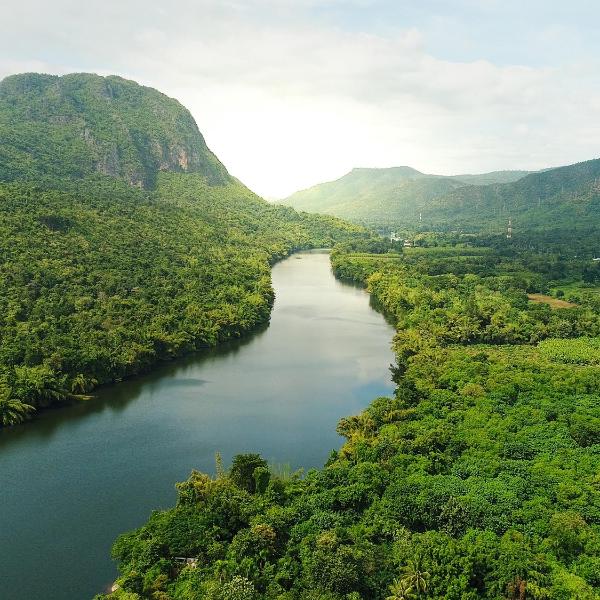Preserve life on land

Preserve life on land
Land depletion, loss of arable land, drought, desertification and floods are increasing year after year. Although we know forests are of great importance in the fight against climate change, deforestation is taking place at a rate of 27 football pitches a minute. Because besides the fact that forests are important for food supplies, they also provide shelter for many animals and indigenous peoples. 22 percent of animal species currently face extinction. SDG 15 advocates protecting, restoring and promoting the sustainable use of ecosystems, biodiversity, forests and combating desertification and land degradation.
How does W+B support this transition?
Witteveen+Bos contributes to achieving this goal in a number of areas. In the Netherlands, the border between land and water is narrow. In the 21st century, water safety requires more and more attention due to climate change. With our expertise in the fields of ecology, land development, geo-engineering, coastal and riverbank works, flood defences and flood protection and land reclamation, we protect life on land, promoting the restoration and development of ecosystems.
Living and working
Living and working safely in delta areas is a complex challenge. Due to increasing populations in deltas, rising living standards and a changing climate, international attention for water safety is also increasing. This is reflected in such programmes as the Delta plan for Bangladesh and the Jakarta Coastal Sea Defence, and advice related to flood management and early-warning systems. The increasing interest in Building with Nature creates opportunities to implement our ecological expertise more widely. This challenge requires a comprehensive approach as well as new concepts. In this context, Witteveen+Bos seeks to achieve a balance between the interests of safety, nature, economic development, liveability and sustainability.
Ecosystems
Every day, our ecologists analyse the interactions between organisms, populations and communities on the one hand and the relationship with the non-biological environment and human beings. The realisation that we need to treat our natural environment responsibly is more or less the standard nowadays. However, protecting and enhancing natural values does not mean there is no room for other developments.
As engineers, our job involves shaping and integrating human activities in such a way that ecological processes are left intact or even improved, for instance by designing ecologically friendly banks, making deep pools shallower, restoring streams, creating reed beds, giving rivers space, restructuring river flood plains, water storage areas, and creating spawning grounds and taking measures to facilitate fish migration. These are just some examples of how we help to improve natural values. Witteveen+Bos uses a system-based approach for this in which we take stock of abiotic processes (soil, water, air) and relate them to the presence of plant and animal species and communities.
